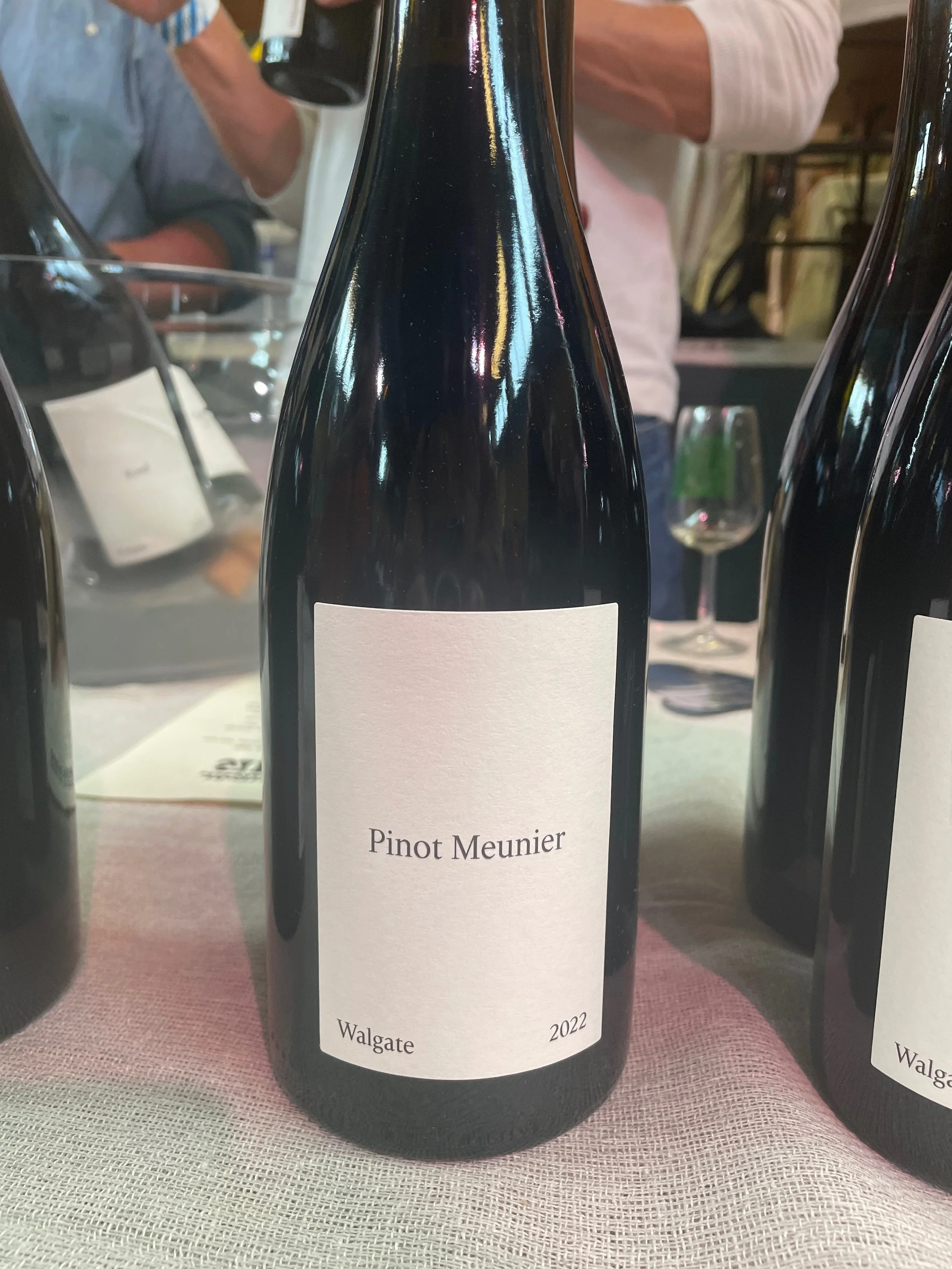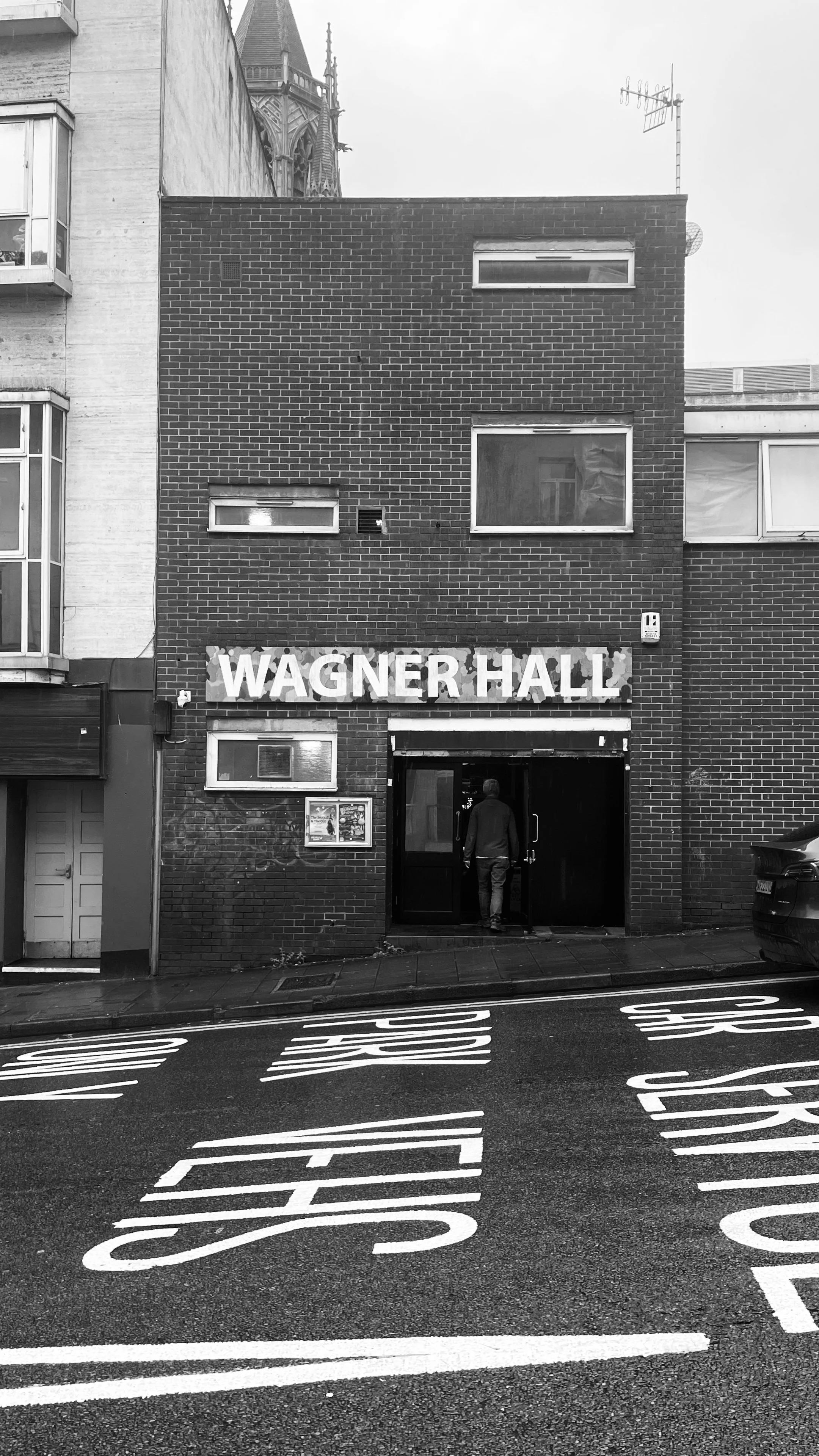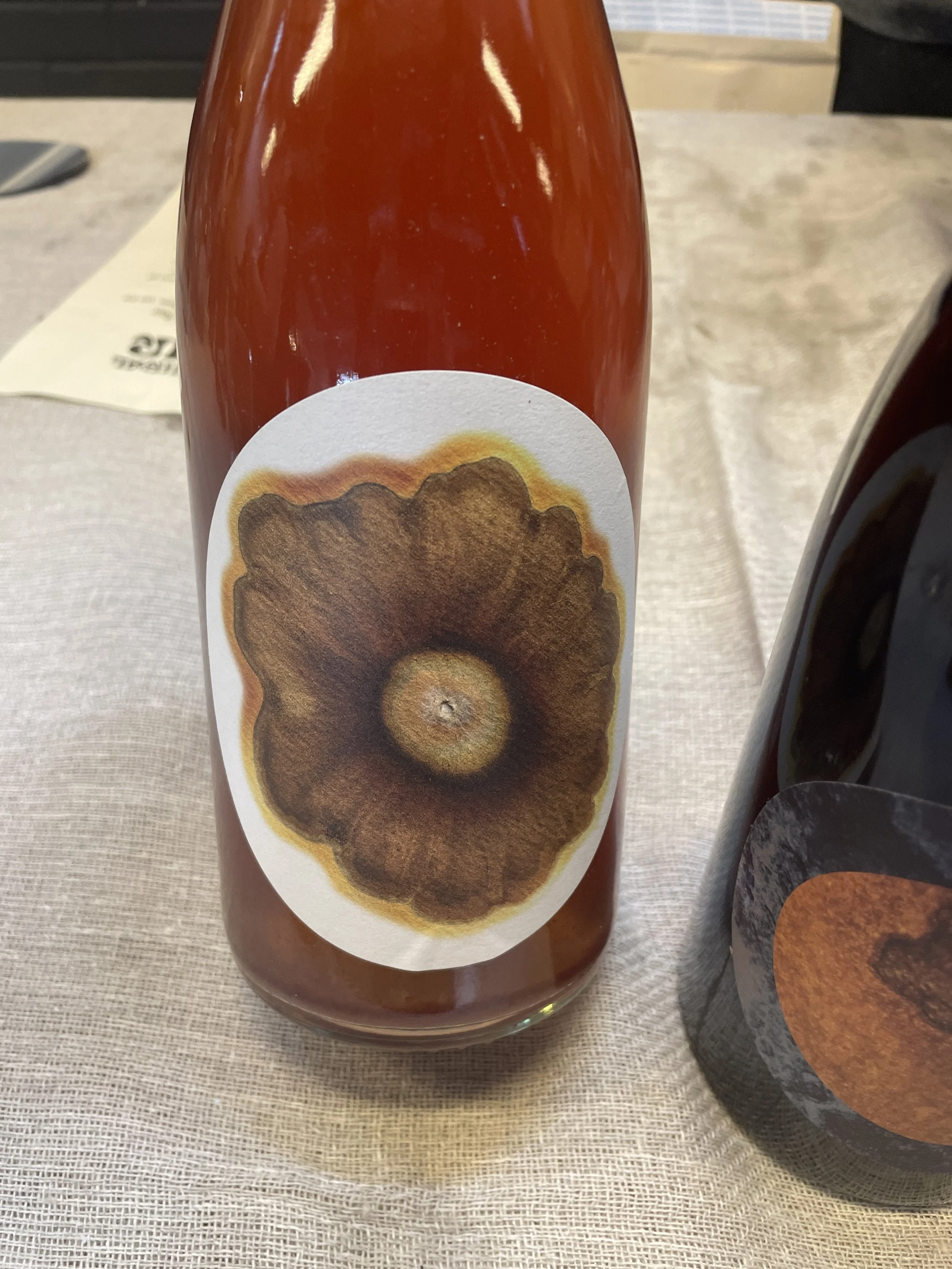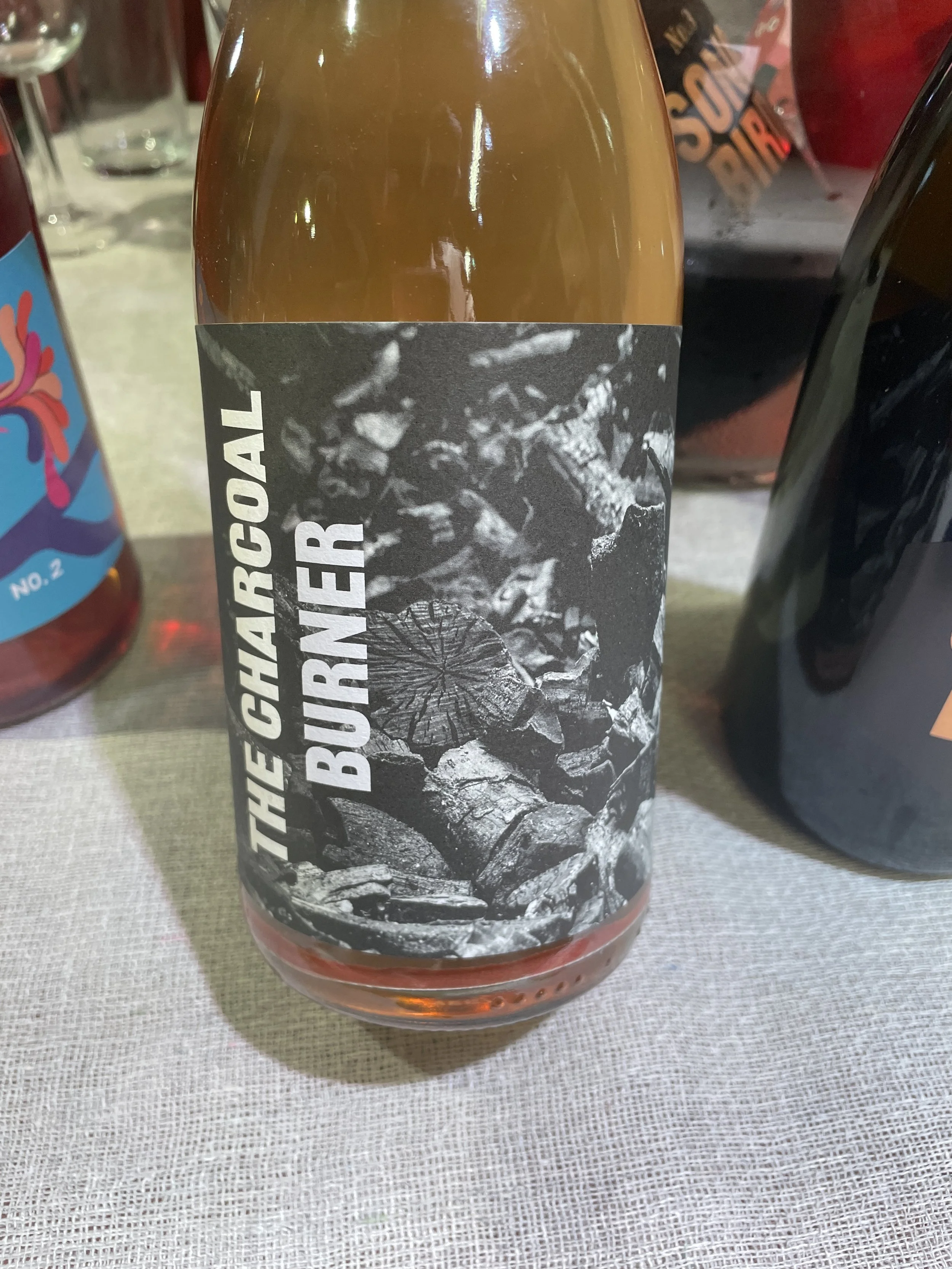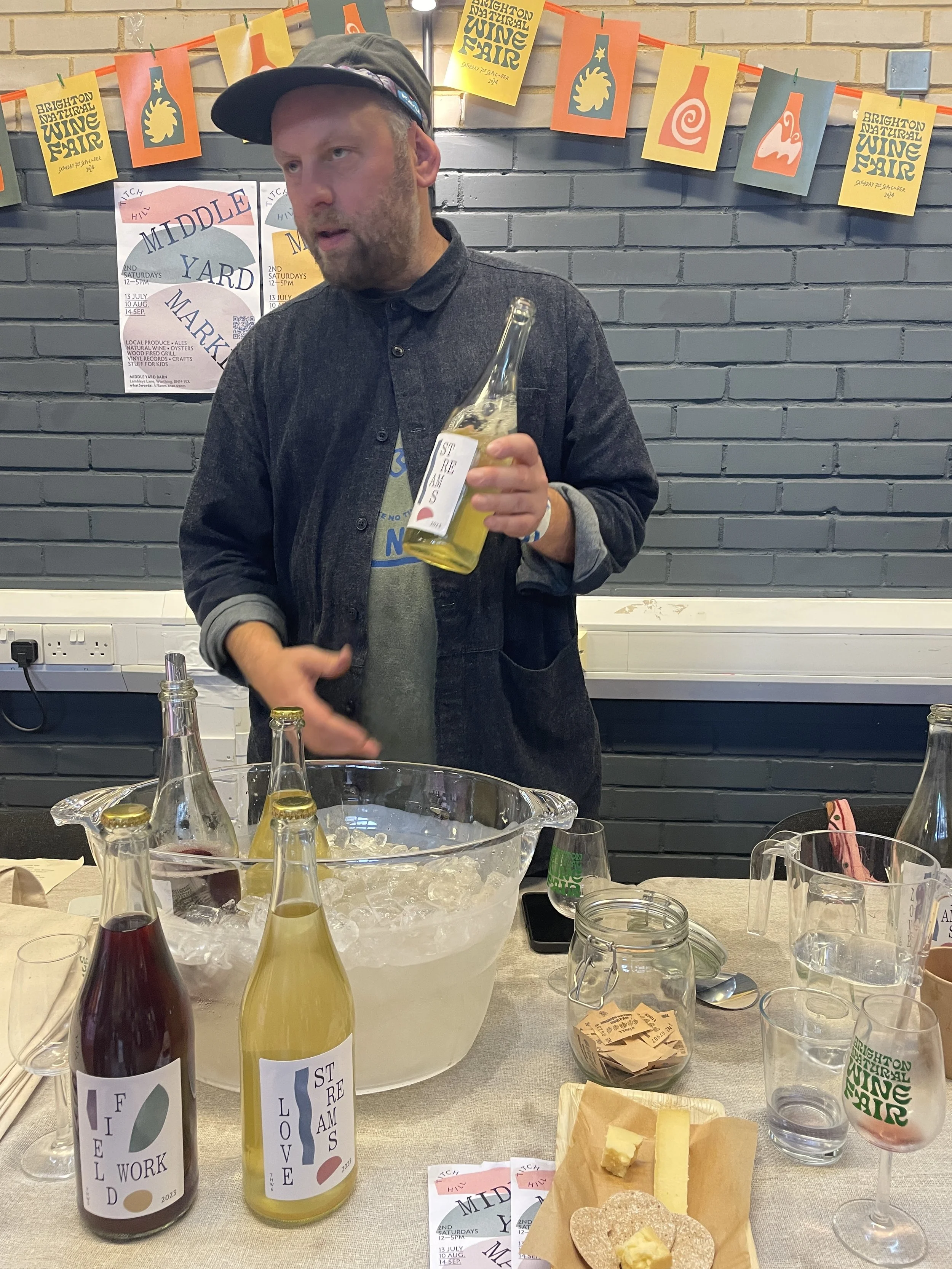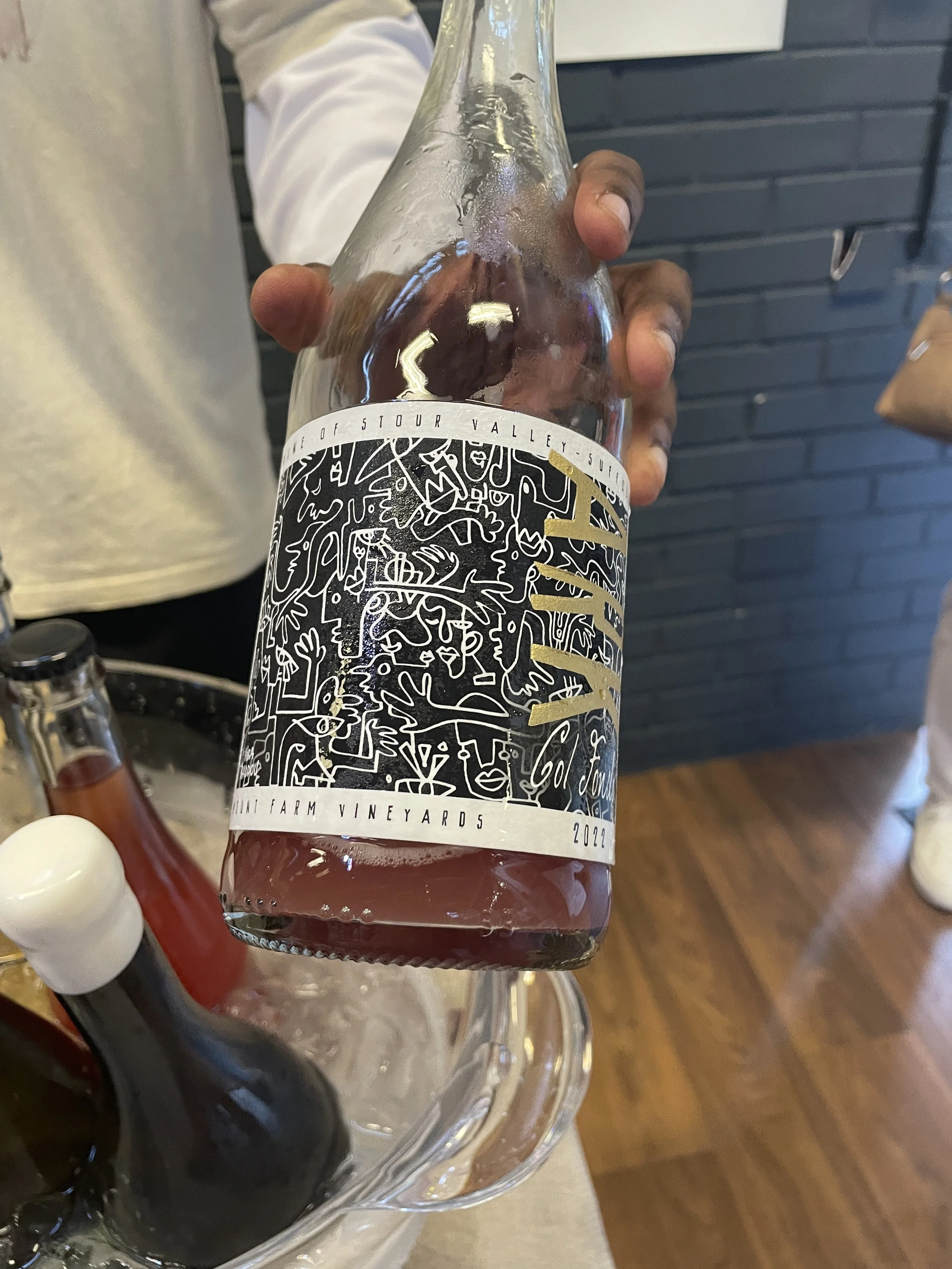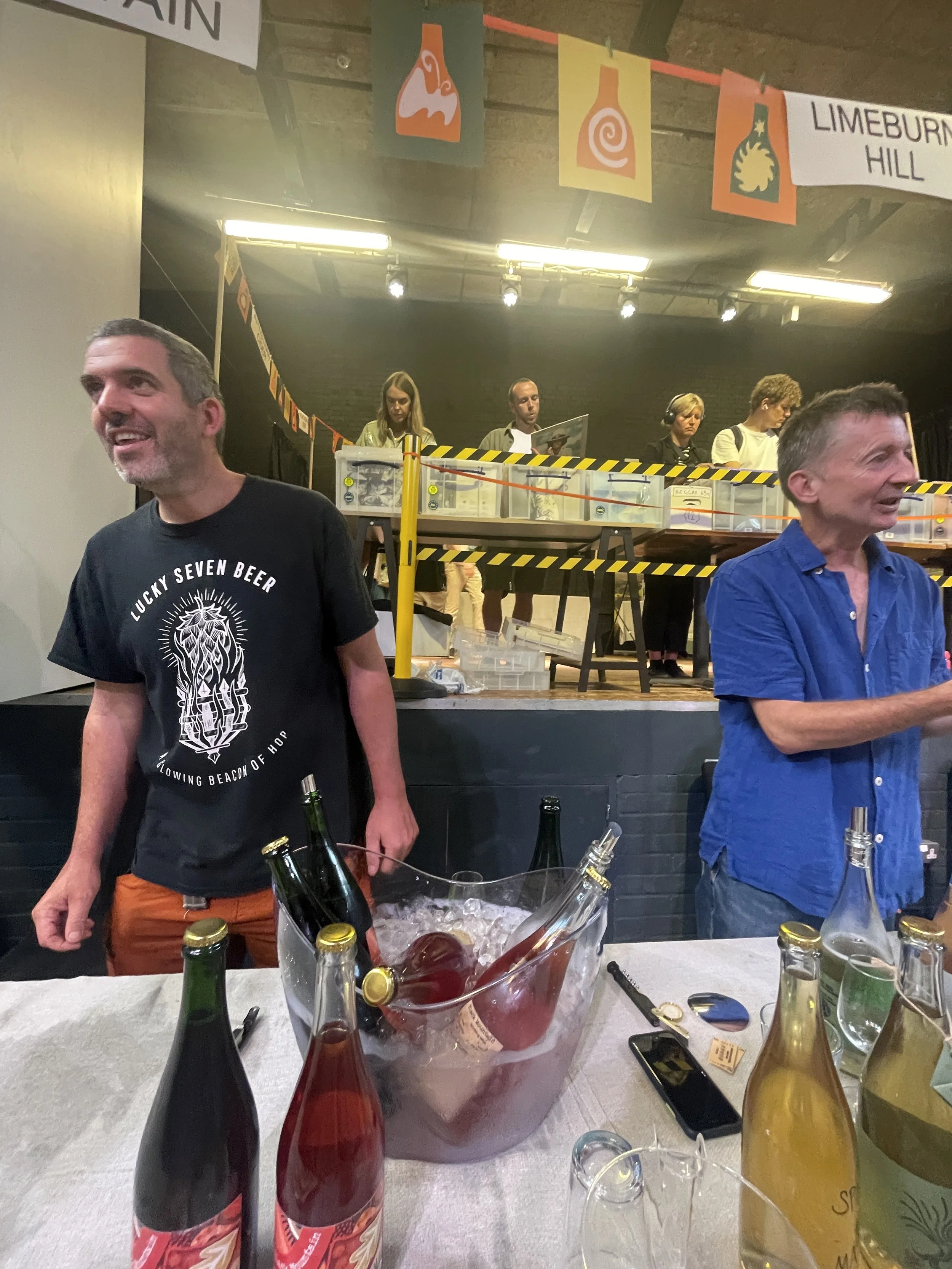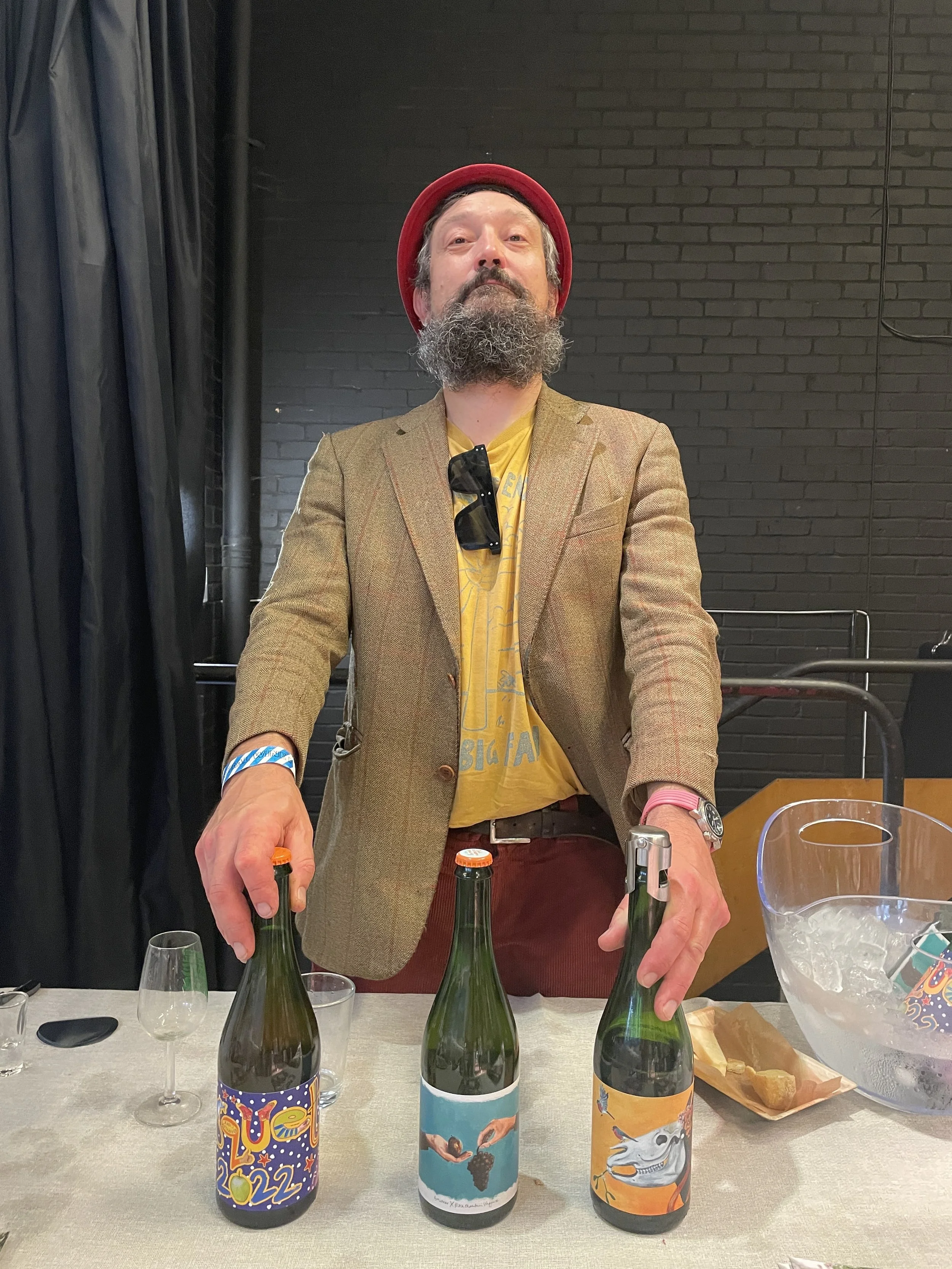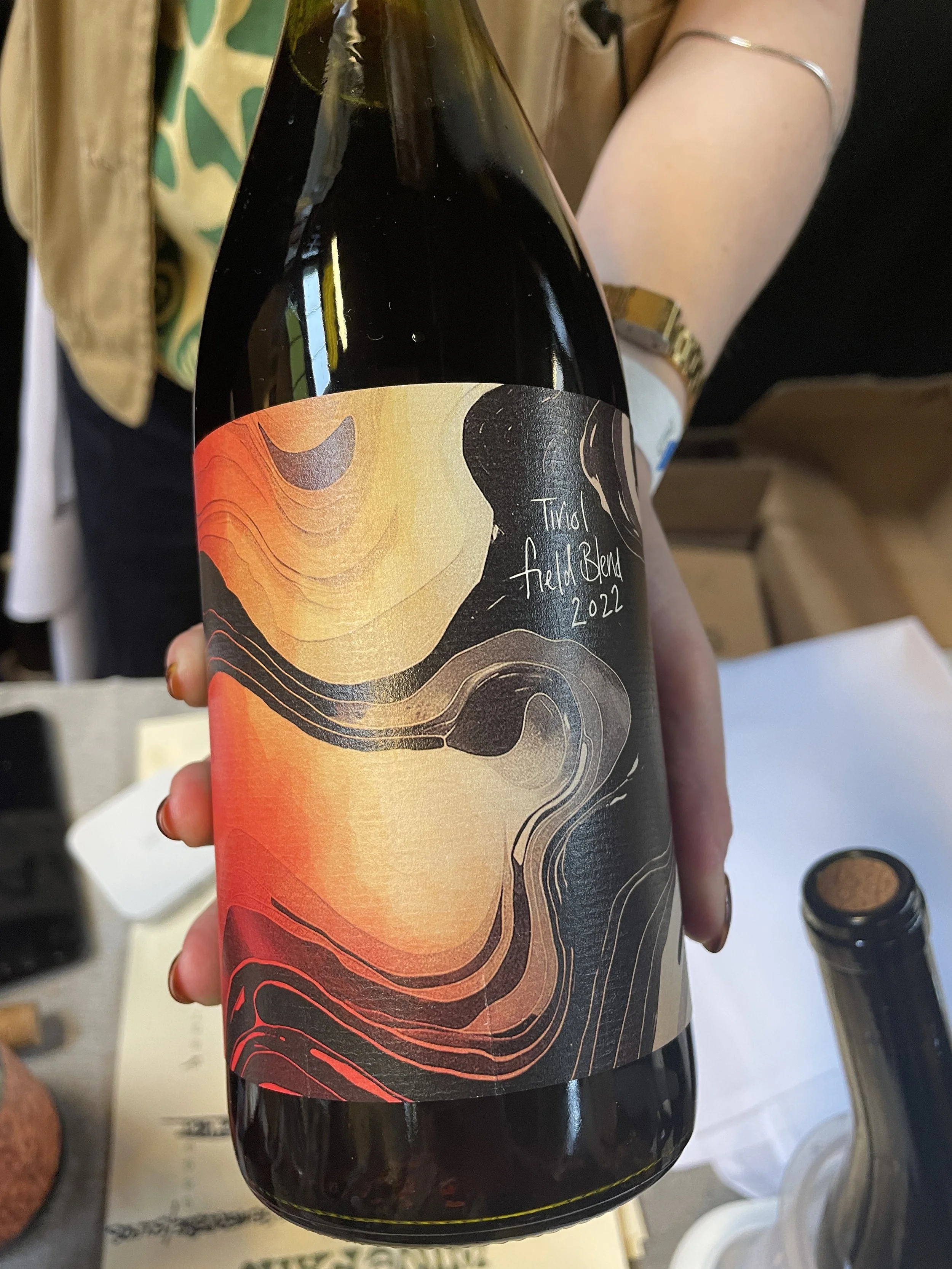Brighton Natural Wine fair
The Brighton Natural Wine Fair on December 4th offered more than just an opportunity to taste unique wines—it provided a lens into the evolving identity of UK winemaking amidst broader economic and political upheavals. On an overcast day, the seaside charm of Brighton and the smell of fairground onions set the scene for an event rooted in local pride and ambition, despite the gloom in the air.
The venue, Wagner Hall, with its village fair vibes, was an ideal setting for showcasing British natural wines. The event's concept of highlighting local winemaking felt refreshingly distinct. Too often, smaller producers, especially from non-traditional regions like the UK, are overshadowed at larger international fairs. Here, they stood front and center, demonstrating that natural wine is not limited to France, Italy, or Spain but is thriving in unexpected places.
However, the atmosphere carried a tension reflective of the UK's uncertain political and economic future. The newly instated Prime Minister, Keir Starmer, had recently delivered a sobering address that encapsulated the country's challenges. While the exact phrasing may be contested, his message struck a chord: the road ahead will be tough, but blame for the current state of affairs lies elsewhere. For many winemakers, this speech symbolized the broader struggles of navigating a post-Brexit landscape, where access to foreign markets is restricted, and domestic opportunities must be maximized.
April 2025 looms large, with the UK poised to become one of the world's most challenging wine markets for exporters. Yet, this context might serve as a catalyst for British winemakers to claim a larger share of the local market. The Brighton Natural Wine Fair offered a glimpse of that potential—a celebration of ingenuity and resilience in a country redefining its relationship with wine.
Winemakers in England impress not just with their dedication but with their clear expertise, credentials, and passion. Unlike regions where tradition sometimes leads to complacency, the challenging UK climate and market demands ensure that no one here is “winging it.” The result? A consistently high standard of wines that reflect meticulous attention to detail and methodical craftsmanship.
The Brighton Natural Wine Fair brought together a select group of around 20 producers, showcasing a mix of growers and négociants. This modest number reflects the relatively small but vibrant UK natural wine scene. Most participants hailed from the southwest and southeast of England, regions where the climate is just manageable for viticulture, with a few outliers representing East Anglia and Wales.
Interestingly, not every producer strictly adhered to natural winemaking practices. Still, the majority embraced the principles of low-intervention winemaking, underscoring the shared ethos of sustainability and authenticity. Their work highlights the resilience and adaptability required to make wine in one of the world's most challenging viticultural climates—a pursuit that has earned these winemakers their rightful place on the global stage.
Having never tasted British wine before—let alone British natural wine—I approached the Brighton Natural Wine Fair with tempered expectations. Still, I was eager to explore what England’s small but passionate wine scene had to offer. By 1:30 pm, however, my skepticism had turned to astonishment. When asked how these wines compared to Europe, I struggled to respond—not for lack of an answer, but because I was still processing what I’d experienced. England, long an underdog in the world of wine, was producing some of the best wines I’d ever tasted.
The wines stood out for their purity and balance, offering clean, crisp, and aromatic profiles with refreshing acidity and vibrant green notes. Harsh tannins, often a stumbling block for many natural wines, were notably absent. For my palate, they were consistently bright, crunchy, and full of life—each glass a testament to the skill and intentionality of the winemakers.
I know some might scoff at this, but the quality genuinely shocked me. What struck me most was the sheer consistency. At many natural wine fairs, you’ll encounter a mix of exceptional bottles alongside others that feel experimental or just okay. Here, however, it was a lineup of hit after hit—banger after banger. England isn’t just dabbling in natural wine; it’s redefining its potential.
Tillingham (E.Sussex)
Traverse wines (E.Sussex)
Ben walgate (E.Sussex)
Titch hill (W.Sussex)
Quatro Mustachio (negociant)
Ark Wines (Suffolk)
Gutter & Stars (Cambridgeshire)
Sharpham (Devon)
Limeburn Hill (Bristol)
Black Mountain (Hereford)
Numbers wine (London)
Black Book (London)
Matt Gregory (Leicestershire)
Northern Wine (Cumbria)
Ham st wine (Kent)
First on my list was Ben Walgate, a platinum-blond powerhouse of UK natural winemaking. Formerly the Managing Director and head winemaker at Tillingham Wines—arguably the only British vineyard I’d heard of before this fair—Ben has recently embarked on a new venture, Walgate & Co., based in Rye. With years of expertise and a formal background in Viticulture and Oenology dating back to 2004, Ben is widely regarded as one of the most accomplished figures in the UK natural wine scene.
Ben’s debut cuvées were a highlight, starting with Cuvée 909, a tribute to Julien Guillot. This wine—crafted from Tillingham-sourced Chardonnay, Pinot Noir, Gamay, and Pinot Meunier—is fermented in an 800-litre qvevri. At just 10.5% ABV, it’s a fine and elegant wine, boasting fresh green tannins and exceptional balance.
Next, the Pinot Meunier 2022 was a revelation. Bright, vivacious, and tingling with acidity, this wine had my gums buzzing in the best way possible—it was an instant favorite. Finally, the Blanc de Noirs, a 50/50 blend of Pinot Meunier and Pinot Noir, rounded out the selection. This wine offered pretty citrus notes and a smooth, polished finish, a testament to Ben’s mastery of his craft.
For more on Ben and his new venture, check out his website—it's clear he’s pushing the boundaries of what British natural wine can be.
Col Fondo , a type of sparkiling wine method that appears to be the other ‘la mode’ for sparking wine in the UK.
Ark Wines ….East Anglian Stour Valley , vine first planted in 2019 Chardonnay and Pinot Noir take up the majority of the vines. Pinot Gris, Riesling and Bacchus are also grown.
Great wines from standouts ..Pinot and Gamay blend .one of the best i’ve had. and the riesling , which everybody loved.
Titch Hill .. Alex & Sam farming 8.5 acres of Chardonnay, Pinot Noir and Pinot Meunier in the South Downs .. a Pet Nat .. quite sweet for me and a nice field blend pet nat that was pretty fresh and juicy.Titch Hill
Hebrons Field Blend from Wales was fantastic—whole cluster, green, fresh, and crunchy, with lovely aromatics. The blend is composed of 65% Rondo and 35% Solaris, delivering a unique and vibrant profile.
If you have the chance, get your hands on these wines. The white was also excellent!
Ham Street Wines
Ham Street wines …Situated just outside the village of Hamstreet in Kent, the vineyard practices regenerative and biodynamic farming across 10 acres. It’s home to a mix of Chardonnay, Pinot Noir, Pinot Meunier, Bacchus, and Pinot Gris vines.
Hit of the Day: An orange wine made entirely from Chardonnay. The grapes undergo 23 days of whole-cluster carbonic maceration, then are pressed into a terracotta amphora and aged for 10 months.
Also worth mentioning is their Pet Nat, a blend of Pinot Noir, Pinot Gris, and Bacchus.
Ark Wines
Ark Wines is located in the East Anglian Stour Valley, where the first vines were planted in 2019. Chardonnay and Pinot Noir make up the majority of the vineyard, with Pinot Gris, Riesling, and Bacchus also being grown.
Great wines from standout blends, including a Pinot and Gamay mix—one of the best I’ve had. The Riesling was also a crowd favorite, loved by everyone.
Black Book , Battersea , ..-,.,., Husband and wife team ,from Conneticut and his Scottish wife are working as negotes , grapes are from growers within hours of the city all organic. YEW TREE VINEYARD, OXFORDSHIRE and CLAYHILL VINEYARDS, ESSEX ,
Limeburn Hill Vineyard is an innovative, ecological vineyard near Chew Magna on the edge of Bristol. vineyard on biodynamic , Demeter-certified natural wines.
Gutter and Stars , producing an excellent Chardonnay ,.
If you are a natural wine fan , this trip is a trip worth making , I flew out from Switzerland for the day , and it was worth it , baring the cancelled flight back and a 16 hour wait at Gatwick , such a lovely , local event , with a nice atmosphere.
Riddle & Finns served lovely oysters.
The vicar didn’t quite appreciate my joke about a Scotsman, an Englishman, and a vicar walking into a bar.
My Ex Priest when I was dragged to mass twice a week was Father McBride, was a man who loved a good drink. Hailing from fine Irish stock, he polished off a bottle of the good stuff by tea time and smoked 40 Regal King Size a day, always in top form.
In contrast, the event was slightly more subdued and classier with our Church of England vicar, who sipped on English Chardonnay while enjoying oysters. that put a smile on my face.
Traverse Wines ( Negociant wine from Rye )
Another interesting new producer emerging from the burgeoning UK low-intervention scene, Traverse is a négociant that sources grapes from East Sussex and produces wine in the cellar at Tillingham. Their red, a blend of Phoenix and Rondo, is only 9% alcohol but was truly enjoyable.
If you're a natural wine fan, this trip is definitely worth making. I flew out from Switzerland for the day, and it was well worth it—despite the cancelled flight home and a 16-hour wait at Gatwick. It was such a lovely, local event with a great atmosphere.





